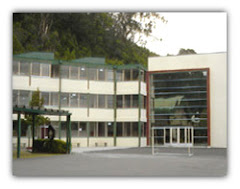yes, that's right for 1 ciclo every monday a listening activitie and for the 2 ciclo on wendsdays.
greets and leave your comments.
thank you all
Sunday, August 26, 2007
Sunday, August 19, 2007
What we will do...
A) First Cicle, I present you the semestral planning you can chaeck it or comment.
B) Second cicle here is yours, you can check it and comment.
thanks and good bye.
| 1. Cities and solving problems |
| 2. How it was your week? |
| 3. How do I get to the airport? |
| 4. Do you like music? |
| 5. Getting a job |
| 6. Following directions. |
| 7. It was good but, it can be better. |
B) Second cicle here is yours, you can check it and comment.
| 1. How do you feel? |
| 2. What are you going to do this week? |
| 3. How do I get to the airport? |
| 4. And how about you? |
| 5. Getting a job |
| 6. Following directions. |
| 7. I would like you... |
thanks and good bye.
Sunday, August 5, 2007
OUR On-line Text Book
Hello again, please post comments, and now I give you the address of the course on line we are going to use as a guide of exercises.
Both types of exercises, the Journal`s exercises and the recreational exercises.
also, I will post the instructions and the exercises I want you to do. of course.
Second Cicle:
English on line
First Cicle
Town vocabulary and exercise
you are free to go as you will through the page, and when you find an exercise you can do, contact me by mail, and print it if you want, the idea is that you participate in the process.
soon more info.
bye and keep the good work.
Both types of exercises, the Journal`s exercises and the recreational exercises.
also, I will post the instructions and the exercises I want you to do. of course.
Second Cicle:
English on line
First Cicle
Town vocabulary and exercise
you are free to go as you will through the page, and when you find an exercise you can do, contact me by mail, and print it if you want, the idea is that you participate in the process.
soon more info.
bye and keep the good work.
Queridos estudiantes, es aqui, este es el primer y ultimo posteo en español, por razones obvias.
Aqui encontraran los ejercicios para su recreacion y tambien las tareas que debe guardar en SU journal.
Tambien van a encontrar un ejercicio de listening diferente todas las semanas a partir de los lunes, es para su diversion y ademas se ve bien en la imagen de ustedes como estudiantes de ultimos años, los dos ciclos.
Muchas Gracias por estar aqui y
¡Vamos a Practicar!
Aqui encontraran los ejercicios para su recreacion y tambien las tareas que debe guardar en SU journal.
Tambien van a encontrar un ejercicio de listening diferente todas las semanas a partir de los lunes, es para su diversion y ademas se ve bien en la imagen de ustedes como estudiantes de ultimos años, los dos ciclos.
Muchas Gracias por estar aqui y
¡Vamos a Practicar!
Thursday, June 21, 2007
THIS IS OUR TRUE STORY
Until the mid-1800’s, our forefathers, the ancestors of the Confederated Tribes of the Colville Indian Reservation, were nomadic: following the seasons and sources of food and moving from place to place to occupy fishing sites and to harvest berries and native plants. In their travels, our ancestors met other indigenous native people of different speech and cultural practices.
know that many times the geographical locations of our ancestors changed depending on their needs and living conditions and moving from summer to winter camps was a way of life.
The nomadic lifestyles of our ancestors have always perplexed non-Indian historians who insist on identifying indigenous native people by specific geographical locations. Our forefathers knew no boundaries until the invasion of Europeans, other than those established by some tribes in certain areas.
Our ancestors were not known to maintain farming communities.
We know that from 1807 when the first trading post was established on the Columbia River to 1820 when Kettle Falls, the famous trading center of our ancestors, was occupied by the Hudson Bay Company, trade with indigenous native people was often conducted by non-Indians from the northern territories. They came from Canada.
Many of our own people lived to the north and they were eventually forced to stay in Canada when the Canadian border became a reality.
Settlers, squatters and trespassers began their great migration west in the mid-1800’s and competed with the Canadians for trade with the indigenous native people. Trading furs and other native goods for commodities and services became a way of life for many natives.
Yes! The course of our history changed forever with the influx of foreign traders and missionaries.
The fight was on for the territories of the West with the new Americans and Great Britain both claiming the Oregon Territory until the Treaty of 1846 established U.S. ownership, fixing the boundary line at the 49th parallel with England taking Vancouver Island.
The indigenous native people living in those valuable territories were considered non-entitled but the United States, England and other foreign interests still wanted their trade.
know that many times the geographical locations of our ancestors changed depending on their needs and living conditions and moving from summer to winter camps was a way of life.
The nomadic lifestyles of our ancestors have always perplexed non-Indian historians who insist on identifying indigenous native people by specific geographical locations. Our forefathers knew no boundaries until the invasion of Europeans, other than those established by some tribes in certain areas.
Our ancestors were not known to maintain farming communities.
We know that from 1807 when the first trading post was established on the Columbia River to 1820 when Kettle Falls, the famous trading center of our ancestors, was occupied by the Hudson Bay Company, trade with indigenous native people was often conducted by non-Indians from the northern territories. They came from Canada.
Many of our own people lived to the north and they were eventually forced to stay in Canada when the Canadian border became a reality.
Settlers, squatters and trespassers began their great migration west in the mid-1800’s and competed with the Canadians for trade with the indigenous native people. Trading furs and other native goods for commodities and services became a way of life for many natives.
Yes! The course of our history changed forever with the influx of foreign traders and missionaries.
The fight was on for the territories of the West with the new Americans and Great Britain both claiming the Oregon Territory until the Treaty of 1846 established U.S. ownership, fixing the boundary line at the 49th parallel with England taking Vancouver Island.
The indigenous native people living in those valuable territories were considered non-entitled but the United States, England and other foreign interests still wanted their trade.
Subscribe to:
Posts (Atom)


